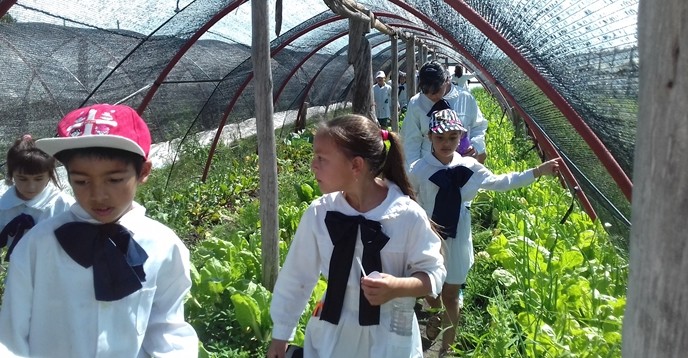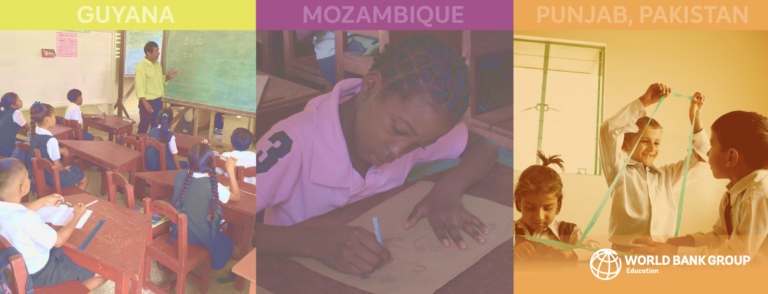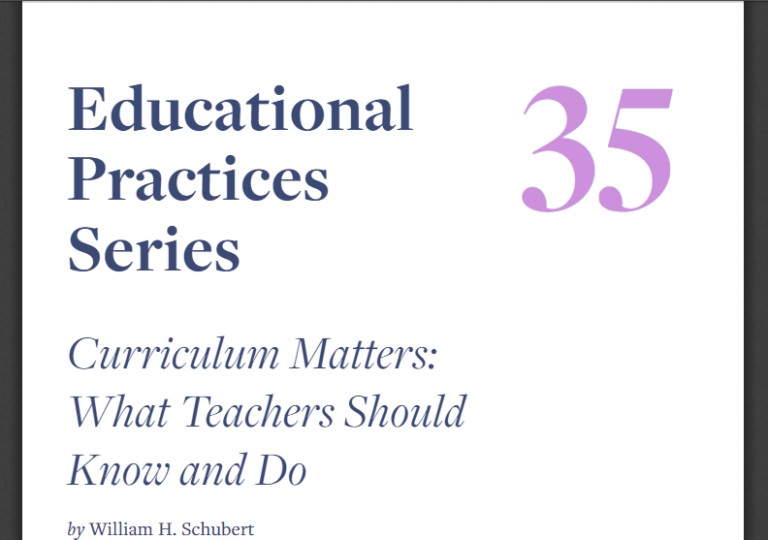Story Source: UNESCO ~ Go to Original Article
A project to change and improve nutrition in a region of Uruguay affected by poverty and cattle disease could end up being replicated across the whole country.
Fundacíon Logros or the Achievements Foundation is a non-profit organization which uses education to bring about a profound cultural transformation towards sustainable living. Since its creation in 2000, it has proven a real success story of Education for Sustainable Development (ESD) and was nominated for the 2018 UNESCO-Japan Prize on ESD.
In 2009, the organization began a local development project, the Organic Garden Programme, in a school in Baltasar Brum in Artigas. This poverty-affected region in the heart of Uruguay was nutritionally and economically very vulnerable after the 2002 foot and mouth disease had devastated cattle-breeding communities.
The project began with a parcel of land of just six hectares and five aims – to be educationally innovative, socially inclusive, environmentally friendly, productively inclusive and economically viable. In 2012 the Foundation was donated a piece of land which it transformed into an Educational Agro-Ecological Centre with multifunctional spaces, a laboratory and a library. They planted native trees, created a nursery, greenhouses and a space to cultivate ‘efficient microorganisms’ to help treat and purify black and grey water in the town.
The programme proved so successful that in 2016 the Foundation moved to Baltasar Brum, a tiny community of 3,000 inhabitants, with the idea that the programme would be driven by students who had initiated the original organic garden and under the direction of one of the teachers who had run the project, Marcos Arzuaga.
‘It’s an area where people have traditionally lived as cattle farmers with a mostly meat-based diet,’ said Marcos. ‘That all changed with the cattle infection. In 2004, the interior of the country suffered a poverty rate of 38 per cent and Baltasar Brum was no exception.
Changing mindsets
‘Very few families with children at the school had kitchen gardens at home. Therefore, we decided to create an organic garden there to cultivate fruit and vegetables with the idea of improving nutrition in the community. The most difficult part was to actually change the minds of children and their parents from eating meat to vegetables.
‘We were successful mostly because the children became the prime advocates producing and consuming their own food and motivating their parents to begin cultivation’ he said.
The Foundation turned its attention to identifying and meeting wider community challenges with the possibility of scaling up in other regions of the country drawing on the strengths of young volunteers. With seed capital and capacity building from the Foundation, a network began to be established linking public and private organizations.
The Centre organizes courses and training in response to demand from the community with activities such as women’s football. Overall, more than 100 young people benefit in the community and surrounding areas.
Work is generated through a cooperative of small producers who produce organic food for self-consumption and to sell. Organic waste is recycled to fertilize vegetables and native trees and 100 per cent of rainwater is captured and used for cultivation and to raise fish that control algae and mosquito larvae and are eaten. The fish feed on vegetable remains and fertilize the water with their waste, which in turn is used on the plants thus closing the cycle. All the educational experiences are socialized through training carried out in Education for Sustainable Development.
The entire process has been set down in a book, ‘Hacia una Escuela Productiva y Sustentable’(link is external) (Towards a Productive and Sustainable School) edited by the Instituto Nacional de Investigación Agropecuaria and shared for free with schools throughout the country.
Respect and value for the environment
‘By living the experience of the organic garden, the children learned to respect and value the environment in a very real way and they were inspired to imagine a future where they could bring about real changes on their own or by working together,’ said Marcos.
The students formed a cooperative in class to manage the different tasks involved in the garden including commercialising the produce. Money raised was reinvested in equipment needed at the school.
‘The president and treasurer of the school cooperative are today working in the same capacities for the Foundation,’ said Marcos.
In order to increase ownership and ensure the programme’s economic viability, community members were persuaded to make nominal contributions.
‘The project is based on the monthly contributions of 150 member families and those who cannot afford it carry out voluntary tasks. We also have support from Uruguayans and Latin Americans in Sweden, and from the Ceibal Plan that reaches all children and adolescents of the country’s formal educational system through the book published by the Logros Foundation: ‘A Home Garden’ written by Verónica Leite.
‘We have learned that nature and the time spent cultivating are allies not enemies and this is a long-term investment. When you sow a lettuce seed you can’t eat the lettuce the next day. And success depends on a community organizing together,’ said Marcos.
The project was originally planned to last 10 years finishing in 2019 but has been so successful that another 10 years are envisaged.
‘Now people are asking why can’t we spread this project throughout the whole country?’ said Marcos.



